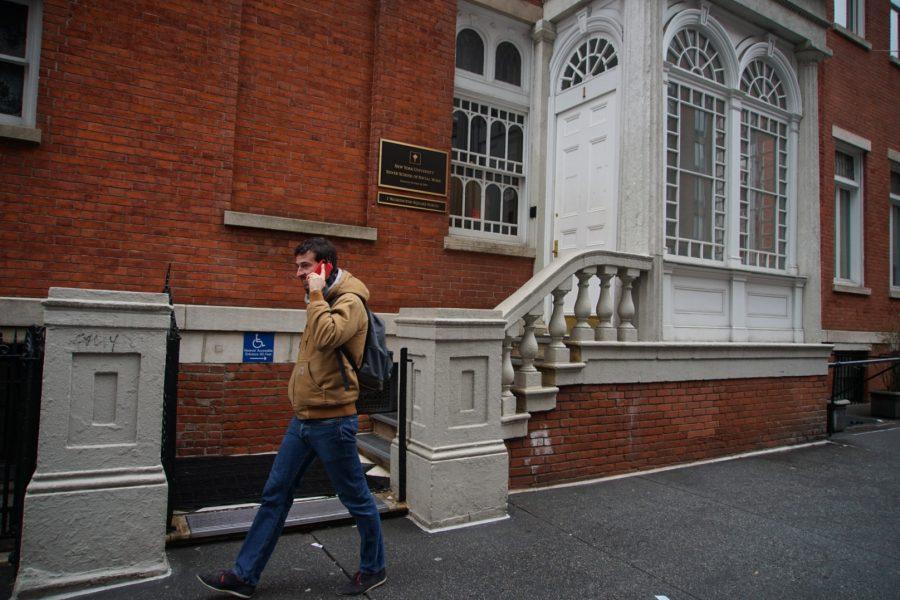After a student’s tweet about a racist experience went viral on Twitter, a group of students has made a list of demands that includes making curriculum changes and establishing mandatory training sessions in the Silver School of Social Work.
Last month, Silver first-year graduate student Shahem Mclaurin was told by a classmate via email that his “black presence” in the classroom made the student uncomfortable. A few days after Mclaurin tweeted about it, Silver responded with a statement that acknowledged ongoing institutional racism at the school and included a laundry list of steps it would take to address the problem. In the statement, the school said it would hire an external consultant who would visit in late February, have its social justice committee release a report on Feb. 22 and discuss the issue at the next faculty meeting.
“We view the email incident as a teachable moment for us,” Silver Dean Neil B. Guterman said. “It has offered a real opportunity to better address the very real challenges of bias and exclusion so that Silver, as a leading school of social work, can become more welcoming, inclusive and diverse.”
After the incident, students from various organizations and associations — as well as Mclaurin himself — joined together to form the Affinity Group Collective and wrote a petition calling for a meeting with administrators to address instances of racial discrimination within Silver. On Feb. 25, the group attended a Silver faculty meeting and laid out a list of demands to address social justice issues at the school.
Silver graduate student Ymani Hawkins is a member of the group and is enrolled in the class in which Mclaurin was discriminated against. She said the group entered the faculty meeting to ensure its voices were heard.
“We walked in and we expressed that we want our nine demands to be heard,” Hawkins said.
Only the white students in the affinity group spoke at the meeting, as students of color felt they were at a higher risk of repercussions; the move also symbolized the silence of faculty members of color in the meeting, according to Hawkins.
The list of action items put together by the Affinity Group Collective includes revising Silver’s curriculum to include critical race theory, decolonization and anti-oppressive action. An overhaul of the application process to emphasize social justice and a mandatory two-day anti-racism training to be held during students’ orientation were also mentioned, in addition to the implementation of a protocol for students of color who experience discrimination in the class or field to report the incidents.
One member of the affinity group asked for specific faculty members to be assigned to each demand, or at least the first three, according to Hawkins.
“A few faculty [members] made it known they would take on the specific tasks,” Hawkins said. “Since then, they’ve been setting up meetings with the affinity group, as well as with Shahem and I, to discuss these things and how they’re going about dealing with them.”
Silver is taking steps to meet some of the demands listed. According to NYU Public Affairs Officer Robert Polner, the school leadership, faculty and students will provide training for faculty on addressing issues of bias and exclusion. The next cohort of incoming students will receive anti-racism training as part of their orientation. The school will also build “socio-emotional supports for students of color” and continue to look at how the curriculum can be adapted to more effectively address issues of oppression, according to Polner.
In addition to working with the affinity group, Silver is holding listening sessions and walk-in meetings with the deans, including Guterman.
“Addressing issues of diversity, equity and inclusion have been a priority for me since arriving at the school in 2017,” Guterman said.
Polner stated that this past fall, Silver launched a search for an external expert to help the school address these issues. Dr. Kenneth V. Hardy, a clinician who works with traumatized and oppressed populations, was selected for the position. Hardy is the former Director of the Center for Children, Families and Trauma at the Ackerman Institute in New York City and made his first visit to NYU in late February, according to Polner.
Guterman said that the school would also be searching for someone to be appointed to the newly created role of deputy director for diversity, equity and inclusion.
Hawkins said that she is hopeful that change will be made as long as students continue to hold the administration accountable.
“I’m encouraged that we have the strength, the faith, the grit to confront these issues and stay on [the faculty and staff] about it,” Hawkins said. “I think that this is going to work.”
A version of this article appeared in the Monday, March 11 print edition. Email Lachlan Hyatt at [email protected].


























































































































































